|

|
Good Boss, Bad Boss:
Don’t let your people fall prey to the blabbermouth theory of leadership.
|
130 |
|
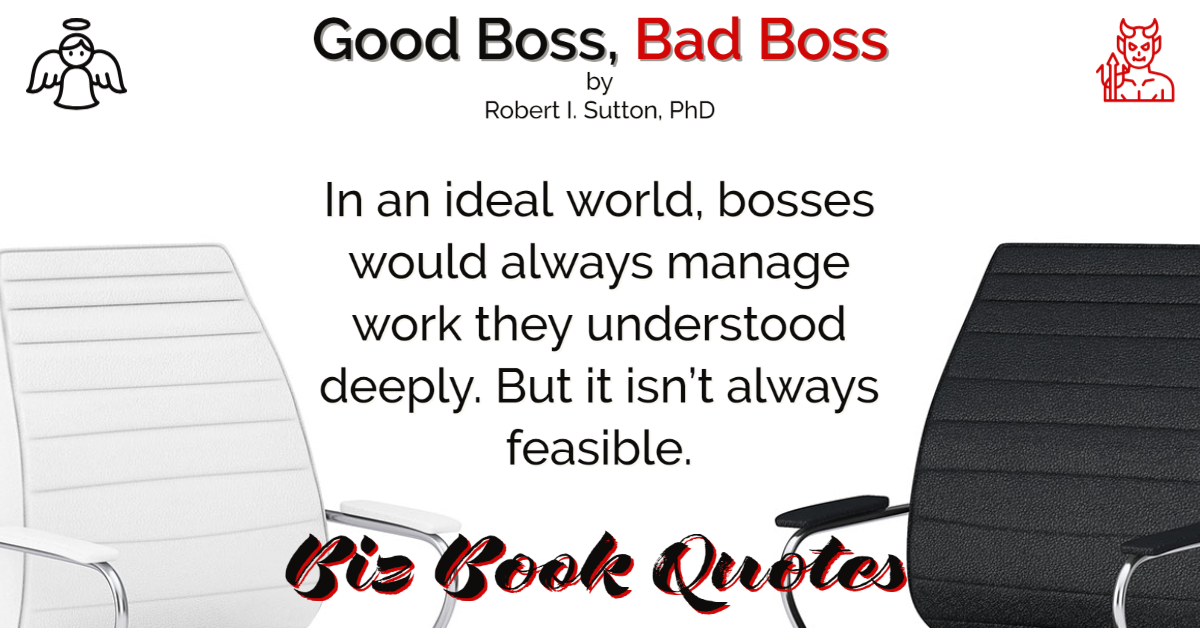
|
Good Boss, Bad Boss:
In an ideal world, bosses would always manage work they understood deeply. But it isn’t always feasible.
|
134 |
|
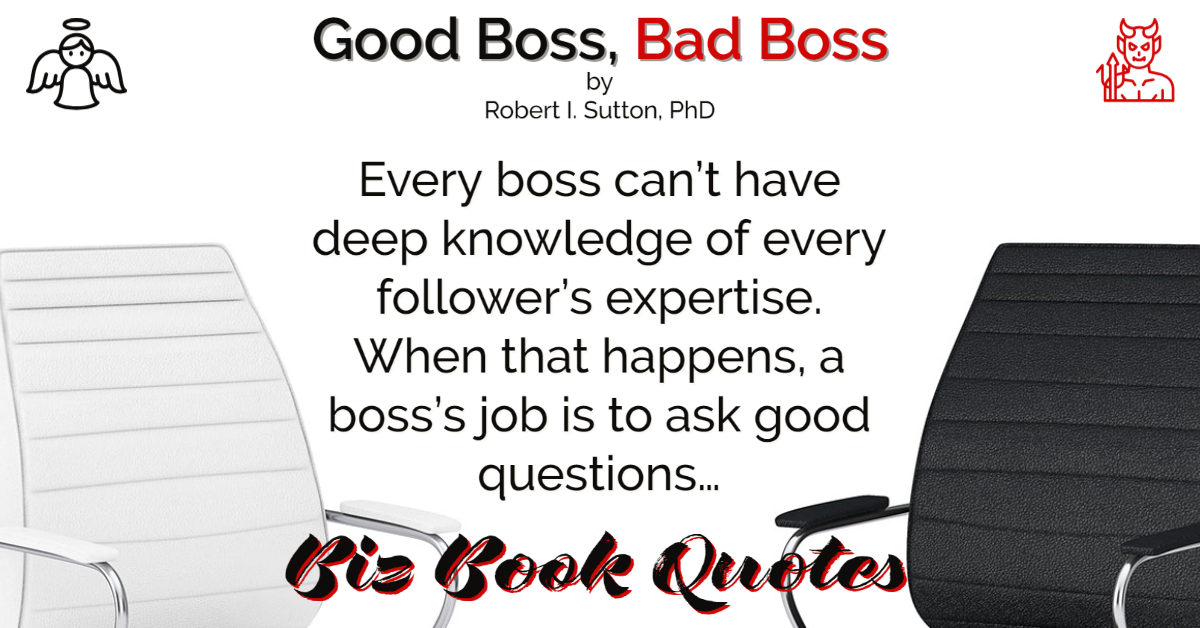
|
Good Boss, Bad Boss:
Every boss can’t have deep knowledge of every follower’s expertise. When that happens, a boss’s job is to ask good questions…
|
134 |
|
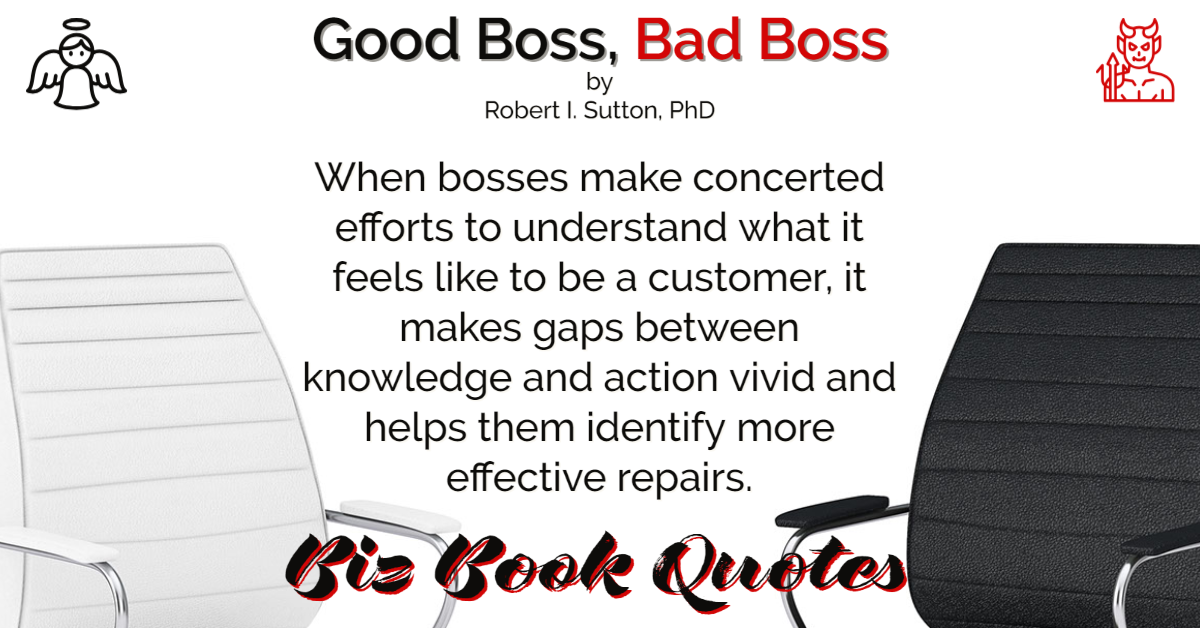
|
Good Boss, Bad Boss:
When bosses make concerted efforts to understand what it feels like to be a customer, it makes gaps between knowledge and action vivid and helps them identify more effective repairs.
|
137 |
|

|
Good Boss, Bad Boss:
…reams of data aren’t enough… you need to understand what your customers do and how it feels to be them.
|
138 |
|
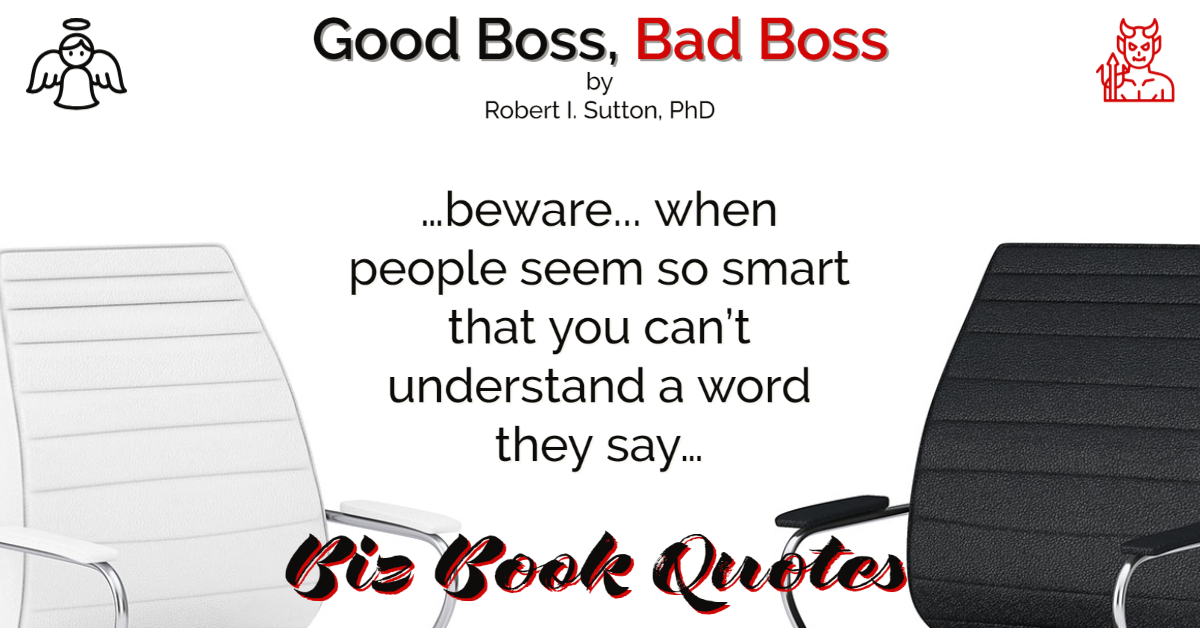
|
Good Boss, Bad Boss:
…beware… when people seem so smart that you can’t understand a word they say…
|
141 |
|

|
Good Boss, Bad Boss:
The best bosses battle unnecessary intricacy, serving as simplicity police who relentlessly reduce the emotional and cognitive effort required for turning knowledge into action.
|
142 |
|
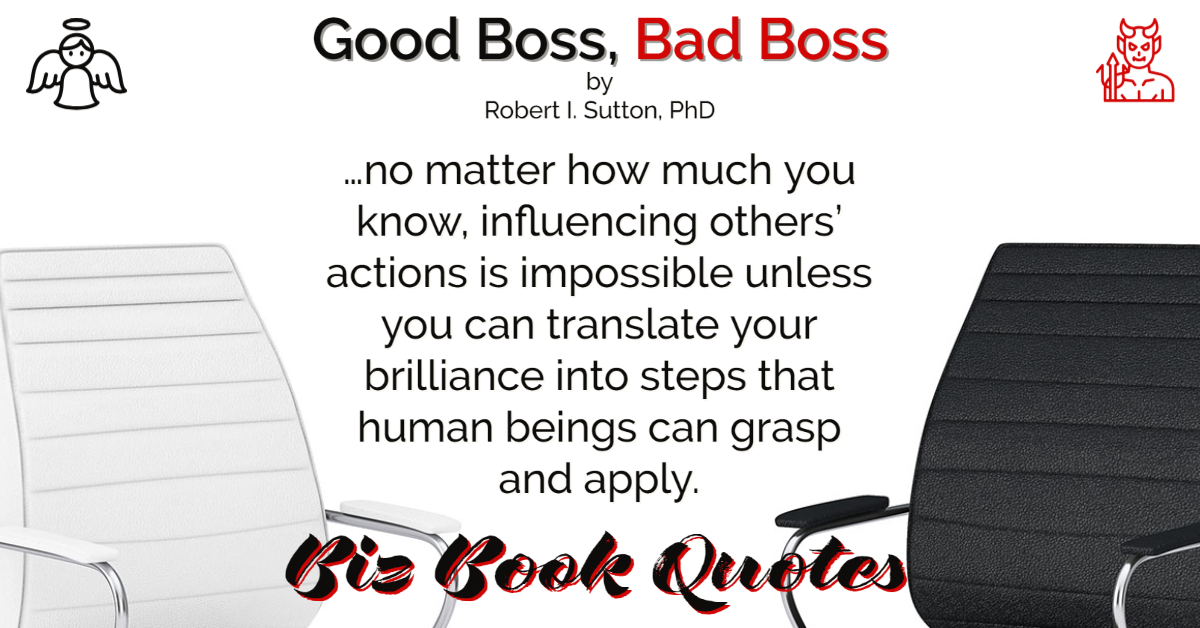
|
Good Boss, Bad Boss:
…no matter how much you know, influencing others’ actions is impossible unless you can translate your brilliance into steps that human beings can grasp and apply.
|
142 |
|

|
Good Boss, Bad Boss:
…collective stupidity makes people feel far better than when they do the same, equally moronic things on their own.
|
148 |
|

|
Good Boss, Bad Boss:
…if you want to incite action… Get people angry by naming the enemy, or get them excited by identifying compelling dreams and goals.
|
151 |











